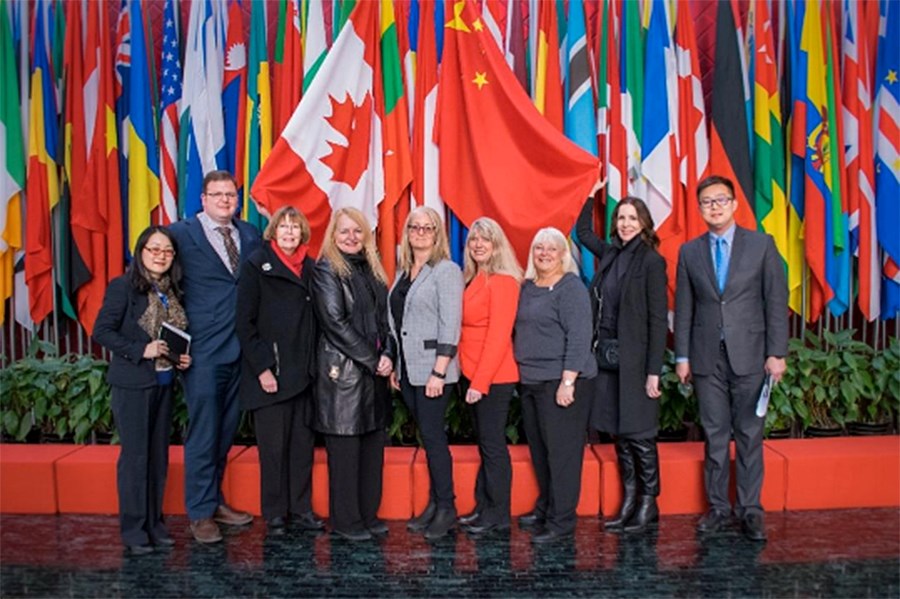Trustee trips to China are necessary because face-to-face meetings with officials are important for building relationships, a board of education meeting was told.
That was the claim made by superintendent Patricia Gartland and international education officials who said the trip trustees made between Feb. 26 and March 9 and paid for by the China Confucius Institute was critical for getting agreements signed with Chinese officials and ensuring the long-term feasibility of the program.
“This is a community that wants to be friends with the world and having all of our children to be friendly and tolerant of other people in the world,” Gartland said as part of her presentation on the program, which has students pay $15,000 fees to attend public schools here.
The board’s presence at high level meetings with Chinese school officials was also described as key to getting more Chinese youngsters enrolled in SD43 summer programs.
But for one of SD43’s key unions, the trip is a conflict of interest and should be explained by trustees.
“I’m waiting for some transparency on this,” CUPE 561president Dave Ginter told The Tri-City News.
“I was expecting to know why it wasn’t a conflict of interest,” the union head added, noting that employees have to abide by a code of conduct that discourages the acceptance of gifts from contractors.
REVENUE GENERATION
The hour-long report to trustees at the Tuesday, June 5 board of education meeting comes months after trustees went to China to meet with officials, visit schools and sign memorandums of agreement for more students to study here.
The visit cost $54,600 and was paid for by a grant from the China Confucius Institute affiliated with the Chinese education ministry. At the time, it raised concerns in some quarters about a conflict of interest if trustees going on the trip have to make decisions about the program in the future.
Hwever, in an hour-long presentation that included videos, student testimonials, photos of trustees in China (and now posted to the district’s website at sd43.bc.ca under publications), Gartland and international education staff described several benefits of the program and credited trustees for making it happen.
The trips have been ongoing since 2007 and help fuel a $37 million revenue-generating enterprise, which pays for teachers, cultural programs, support services and more, according to SD43 officials.
NOT A PERK
During the trip, described as “exhausting,” trustees visited Hong Kong, Shanghai and Beijing, met with education bureaus and embassy officials to promote the district and visited schools where they learned how teachers use Micro:bits to teach coding, a program also in place in middle schools here.
Gartland said SD43 students benefit because they learn how to be global citizens and can take part in cultural exchanges. She also added that resident students are not displaced by foreign students.
According to SD43, international education generates $60 million in local economic benefits, helps homestay families generate extra income of between $10,000 and $12,000 annually and gives the Tri-Cities a “heightened international profile,” which attracts investment and creates jobs.
This past year, 2,035 foreign students attended schools here — 1,668 at the secondary level, 182 at middle school and 185 at elementary school.
The fees they paid generated 132 teaching jobs and $700,000 for host schools. The program also runs in the summer, creating 100 summer teaching jobs, volunteer hours for students as well as income for the district.
In her presentation, principal Jean Wong noted that international education also paid $1,000 to each high school to cover grad costs for students who couldn’t pay, added extra staff and paid for multicultural initiatives.
However, foreign students’ mental health and safety was an issue raised by trustees, but they were assured that counsellors are available to help as well as a 24/7 insurance program called Guard Me, that costs the district approximately $90,000, which provides support in the students’ own language.



